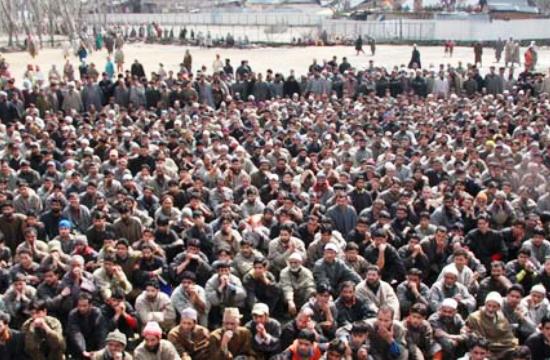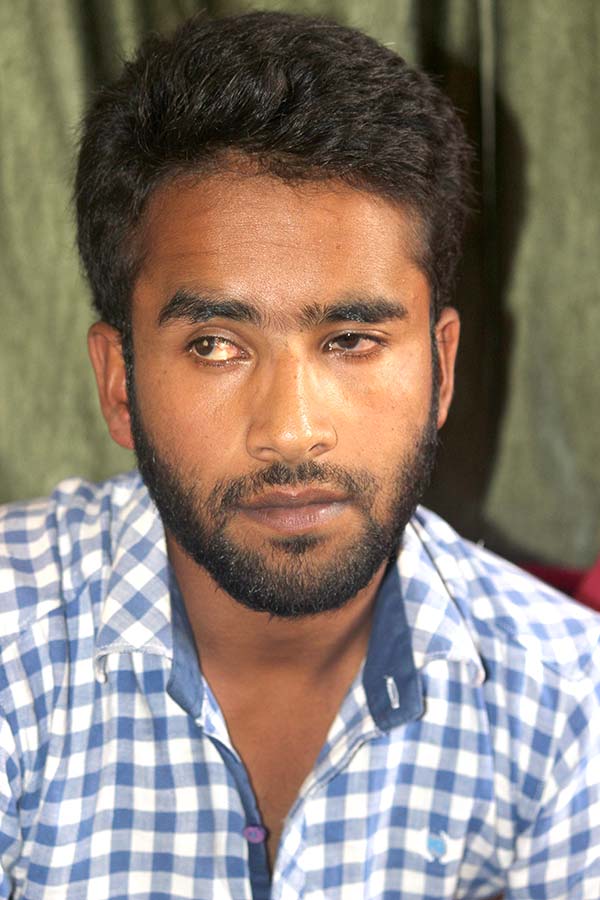Kashmir youths risk lives to join military
By: Izhar Wani
BARAMULLA, India, March 29, 2009 (AFP) – Last year, Imtiaz Ahmed was marching in some of the biggest pro-freedom demonstrations India has faced in revolt-hit Kashmir since the start of an insurgency two decades ago.
But recently he was among 15,000 young men who lined up inside an army-ringed cricket stadium for a rigorous physical exam, hoping to qualify for a job with India’s military.
Anxious for jobs to help their families in this scenic Muslim-majority region, where unemployment is high due to the revolt which has scared off investors, they were defying militant death threats to join the army.
“I will try my best to impress the selectors as I need this job desperately,” bare-chested Ahmed, 23, said as he prepared for the long jump and watched others being put through their paces in the heavily guarded stadium.
“There are no government jobs and I have to take care of my two sisters and my parents who are growing old,” he said, smoothing his white shorts nervously ahead of his tryout.
Muslim militants have been waging a deadly separatist revolt against Indian rule in this Himalayan state for nearly 20 years and regard youngsters trying out for the Indian army as traitors to the cause.
They have issued death threats against recruits and said their property will be “confiscated.” Rebels have killed or maimed local army and police recruits and their relatives and slain those they believed were army informants.
The young men interviewed by AFP at the recruiting session in Baramulla, 55 kilometres (34 miles) north of summer capital Srinagar, said they knew that trying out for the army put their lives in danger from militants. “I’m fully aware of the threat but I haven’t any other choice,” said Ashraf Lone, 24, a college dropout. “I work as a labourer and earn 100 rupees (two dollars) a day. That isn’t even enough to buy medicine for my parents.” Lone said joining the army was his “only hope.”
Despite the threats, the attractions of a military career are obvious. New recruits in the Indian army draw a monthly salary of 10,000 rupees and receive healthcare and other benefits.
The insurgency, which has left more than 47,000 dead by official count, has shattered Kashmir’s economy, driving away vital tourists and discouraging business investment.
During last summer Muslim-majority Kashmir valley witnessed some of the biggest pro-freedom demonstrations since 1989, the year when militants launched their insurgency.
But despite the protests, the hefty turnouts at recruitment rallies such as in militant-infested Baramulla “is a sign of normalcy returning” to the region, said army spokesman Colonel Uma Maheshwar. The thousands of applicants who crowd the rallies are a far cry from the early years of the insurgency, when only a few used to show up.
Rebel violence has been receding against the backdrop of a slow-moving peace process between nuclear-armed India and Pakistan. Even after New Delhi put the dialogue on hold following November’s deadly militant attacks in Mumbai, violence has remained relatively subdued.
India blamed Pakistan-based Lashkar-e-Taiba for those attacks — a charge that the rebel outfit has denied. As well as the army, people are also joining other Indian security forces such as the paramilitary Border Security Force and Central Reserve Police Force.
While some expressed ambivalence about joining the army, which is viewed as an oppressive force by many Kashmiris, many youngsters were excited at the prospect of a job. “I’m optimistic I’ll get the job. I want it,” said Shakeel Ahanger, a 20-year-old in the final year of school.
“I’ve no fear. Once I’m selected, I can take care of myself and my family,” he said, panting heavily after running two kilometres as part of the trials.
















